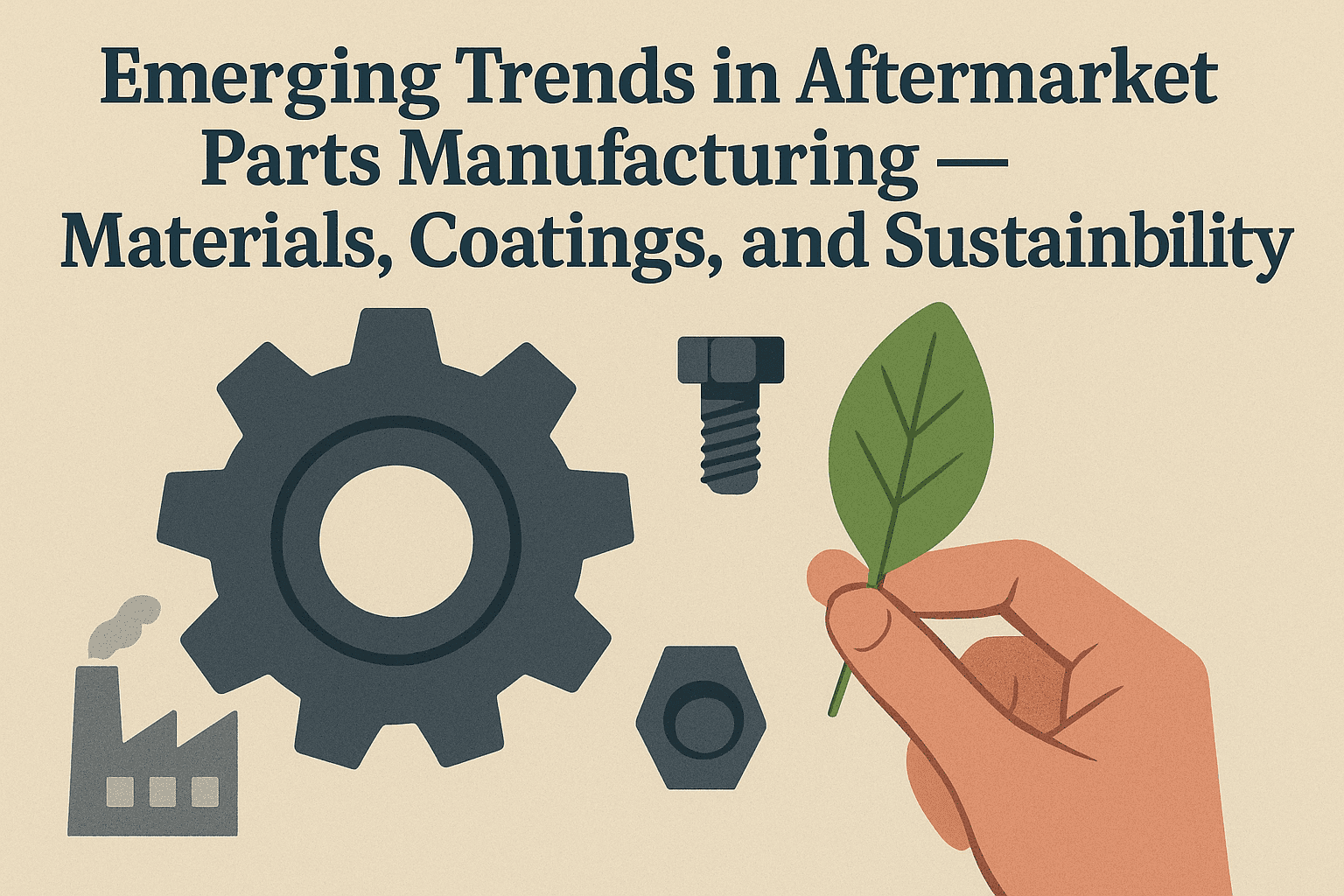Emerging Trends in Aftermarket Parts Manufacturing — Materials, Coatings, and Sustainability

The global aftermarket parts industry is evolving rapidly, driven by customer expectations, stricter regulations, and the push for sustainability. Manufacturers are adopting advanced materials, protective coatings, and eco-friendly processes to deliver parts that are more durable, cost-effective, and environmentally responsible. This shift is not only redefining how parts are designed and produced but also influencing performance and longevity in industries such as automotive, agriculture, construction, and heavy machinery.
In this blog, we’ll explore the emerging trends in aftermarket parts manufacturing, focusing on materials, coatings, and sustainability practices shaping the future of this sector.
1. Advancements in Materials
Aftermarket parts manufacturers are moving beyond traditional metals to explore lightweight and high-performance alternatives.
a) Lightweight Alloys
Aluminum alloys and magnesium composites are increasingly used in parts to reduce weight without compromising strength.
Benefits include improved fuel efficiency in vehicles and easier handling in agricultural and industrial equipment.
b) High-Performance Polymers
Polymers such as nylon-reinforced composites are being adopted for components that require flexibility, heat resistance, and reduced wear.
These materials often replace heavier steel parts, lowering production costs and increasing efficiency.
c) Recycled Materials
Manufacturers are integrating recycled plastics and metals into aftermarket parts.
This reduces dependence on virgin raw materials and supports circular economy initiatives.
2. Protective Coatings for Durability
Coatings have become a critical part of aftermarket parts manufacturing, ensuring components last longer under demanding conditions.
a) Anti-Corrosion Coatings
Advanced zinc-nickel and ceramic coatings help prevent rust, especially in brake systems and agricultural equipment exposed to moisture.
b) Thermal Barrier Coatings
These are used in exhaust systems and engine parts to withstand extreme heat and improve efficiency.
c) Wear-Resistant Coatings
Nano-coatings and PVD (Physical Vapor Deposition) coatings extend the life of moving parts such as gears, bearings, and hydraulic components.
3. Focus on Sustainability
Sustainability is no longer an option — it’s a demand from customers, regulators, and industries.
a) Eco-Friendly Manufacturing Processes
Factories are adopting low-emission production techniques and energy-efficient equipment to reduce carbon footprints.
Water-based coatings and low-VOC (volatile organic compound) materials are replacing harmful chemical-based processes.
b) Recycling and Circular Economy Practices
Companies are taking back used parts, recycling materials, and repurposing them into new products.
This reduces waste and helps maintain supply chain resilience.
c) Green Supply Chains
Local sourcing of raw materials reduces transportation emissions.
Partnerships with eco-conscious suppliers are becoming standard across the aftermarket ecosystem.
4. Digitalization Supporting Trends
While materials and coatings dominate, digital technologies also accelerate these changes:
3D printing enables the production of lightweight, custom-fit aftermarket parts with minimal waste.
IoT-enabled sensors help monitor wear and tear, allowing predictive replacement with eco-friendly and durable components.
Data-driven designs optimize material usage and performance efficiency.
Conclusion:
The aftermarket parts industry is experiencing a transformation rooted in advanced materials, durable coatings, and sustainable practices. These innovations not only extend product life and improve performance but also align with global demands for greener and more efficient manufacturing.
As sustainability and efficiency continue to dominate, businesses that adopt these emerging trends will not only stay competitive but also build stronger trust with customers who value long-lasting and eco-conscious solutions. Need Guidance - Contact Tracsol Automotive today